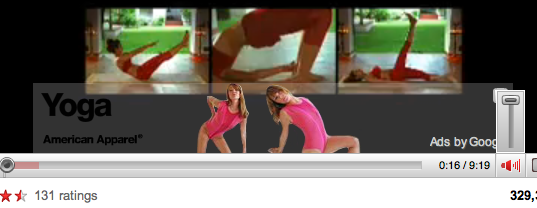There are so many seemingly important things to do when a TV show goes to commercial breaks.
The dog needs to go out, there are important updates waiting on Facebook, and the email that didn’t write itself all day demands attention.
What I really don’t need is to be sold something.
I’m not fundamentally opposed to advertising. I realize, and completely support, that commercials fill an important role in our consumer driven marketplace.
However, I will own up to a cellular level skepticism when a face cream promises to not only moisturize my skin, but to make me look 15 years younger and fill my social calendar.
I’ve also been known to get a bit vocal if a product seems to patronize, condescend, or try to convince me that I need to be fixed. Therefore, to avoid subjecting my family to indignant rants, commercial breaks have become an opportunity for me to check some items off my to-do list
It was an unusual spin to the typical sales pitch that caught my attention recently and kept me in my seat for the length of a commercial.
“I love this body, no matter what size” says Jessica Simpson in the new Weight Watchers commercial. “My body, like my life, is a work in progress.”
This was a deviation from previous weight-loss pitches that featured tearful testimonials of women explaining how ashamed and embarrassed they were of their bodies prior to buying the meal plan.
With the Simpson ad, Weight Watchers attempts a more body—positive approach than the previous shaming tactics offered. It’s an interesting approach, but maybe not entirely positive, suggesting we accept ourselves the way we are—but not too much—because we really need to buy a weight lose product.
Is this a step in the right direction?
Historically the strategy for marketing to women, has been to tell a story of inadequacy. The process was fairly straightforward.
Step one—convince us that we either are not enough or don’t have enough
Step two—present the product that will fix us.
The Weight Watchers ad represents a shift in the way advertisers endeavor to get us rushing to the store. With the new tactic we’re told that we’re powerful, and to prove it we need to buy the product that told us that good news.
Dove was an early groundbreaker in this new form of empowerment advertising with its “Real Beauty” campaign.
Their idea was to persuade us to purchase cosmetic products to enhance our outer beauty by suggesting that we recognize our inner beauty.
Nivea puts forth the hypothesis that our dry skin is holding us back.
Thank goodness they inform us, their cream is our gateway to freedom!
Even Kleenex is taking a stab at being inspirational. Their new commercial features an array of women dabbing their noses with Kleenex to a song whose lyrics tell us everything we can do “because we can”.
Presenting freedom and fulfillment as worthwhile pursuits may seem positive, but when a company proposes that our freedom might be in jeopardy due to dry skin, or that a paper product will bring my life purpose and fulfillment that’s a faux positive, and its insulting.
However, there is an upside to the trend toward faux positive commercials.
I don’t know if the marketing departments of these brands have found a new respect for women. I do know that, even if they have, it wouldn’t cause them to change their ad strategies.
Generally, a corporation only changes direction if their old one stops working, and this is where the good news is.
After decades of rewarding companies for taking pot shots at everything from our bodies to our sex lives, from our personal grooming to the way we age, women have finally communicated that we’re not buying it anymore. We found our voice and told advertisers that they need a new way of talking to us.
Women are tired of seeing themselves portrayed as broken and lacking in big budget commercials. As a result, we’re demanding that we be recognized for a set of priorities that doesn’t necessarily include how well pressed our husband’s underwear is.
The new empowerment messaging may still be a way of manipulating us to buy.
In some cases the message may actually be more faux than positive, and it may still make ludicrous claims that insult rather than empower.
However, if female consumers have determined that we will no longer respond to being told we’re inadequate, that’s truly positive.
Love elephant and want to go steady?
Sign up for our (curated) daily and weekly newsletters!
Editorial Assistant: Jessica Sandhu/Editor: Bryonie Wise
Photo: Courtesy of elephant journal Archives







Read 1 comment and reply